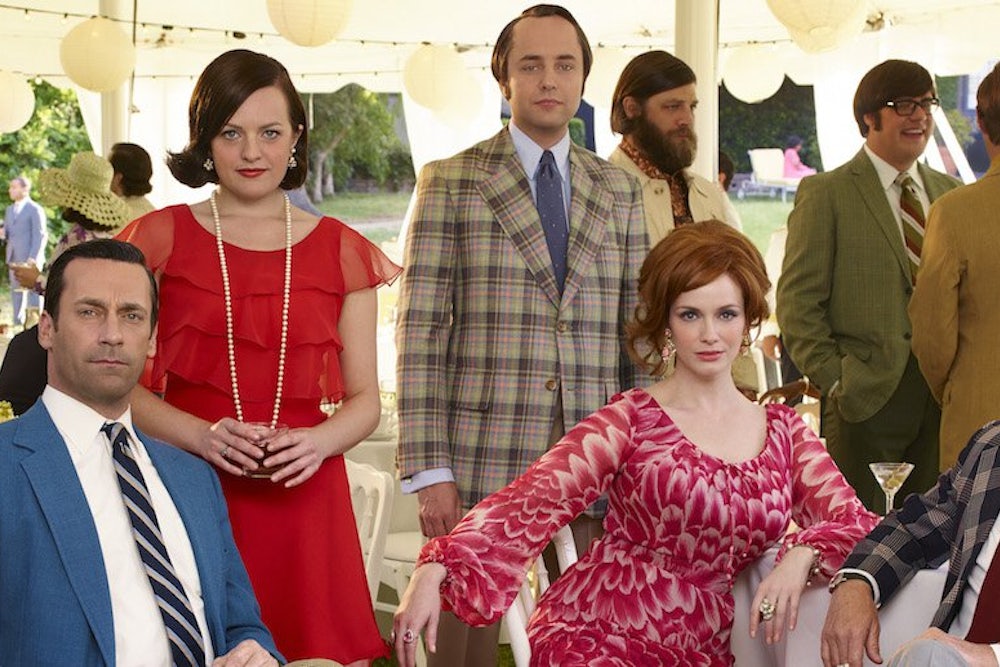The first half of the final season of “Mad Men” ended last May in a rare moment of triumph: Peggy delivered a heartwarming sales pitch, Roger—once again—saved the company, and man walked on the moon. After selling their shares of the firm to advertising conglomerate McCann-Erickson, Roger, Joan, Don, and Pete became millionaires. Don was back in Peggy’s good graces and had discovered the redemptive power of creative work. It was a happy ending, at least by “Mad Men” standards; even Bert Cooper, who died moments after watching the moon landing on television, got to come back for a final song-and-dance number.
I don’t think it counts as a spoiler, even by Matthew Weiner’s draconian guidelines, to inform you that Sunday’s episode doesn’t stick to that sanguine mood. Weiner has seven more hours to bring the show to some sort of conclusion, and happily ever after is about as likely as Don Draper jumping out his office window—which is to say, not very. Instead, Weiner has written an hour haunted by regrets and the ghosts of missed opportunities.
The commercial for this season was set to Diana Ross’s disco classic “Love Hangover,” and that’s what these final episodes feel like: the hangover from a long decade. The advertising business has never looked grosser or more dissolute; there are no jolts of inspiration or creative revelations, just leering men and scantily clad women. At its most hopeful last season, the show hinted that work was a place to find fulfillment. In Sunday’s episode, it’s nothing but a place to kill time until you die.
Early on in the episode, Don casually tells a story from his childhood, about his stepmother Abigail and his uncle Mac and the whorehouse they all lived in. “He loves to tell stories about how poor he was,” Roger responds, rolling his eyes as the women they’re with laugh in their expensive dresses and heavy make-up. For most of “Mad Men”’s run, this was Don’s most carefully guarded secret; it was the closest thing the show’s narrative engine had to a Chekhov’s gun. First Pete Campbell found out, then Bert Cooper, then Betty. He told the truth to Megan, and eventually to a group of Hershey’s ad executives and then his kids. At one point it seemed like reconciling with his past was what would lead Don to an emotionally honest life. But now everyone knows, and it’s just become another charming party anecdote, one more way to pick up women.
Matthew Weiner has been telling us this from the first season’s anticlimax, when Pete finds out about Dick Whitman and rushes to tell the boss. Bert Cooper’s response is one of the show’s great moments: “Who cares?” It’s a question that applies to every character in this episode. Joan is now an account executive, a partner, and a millionaire. Who cares? Not the men who still won’t take her seriously, who stare at her body in business meetings and treat her like a piece of meat. Peggy has all the professional success she could have dreamed of, and she’s still alone and overworked and unsatisfied. The unthinkable happens, and you just incorporate it into the life you have. Who is Don Draper? The biggest secret is that it never really mattered.
